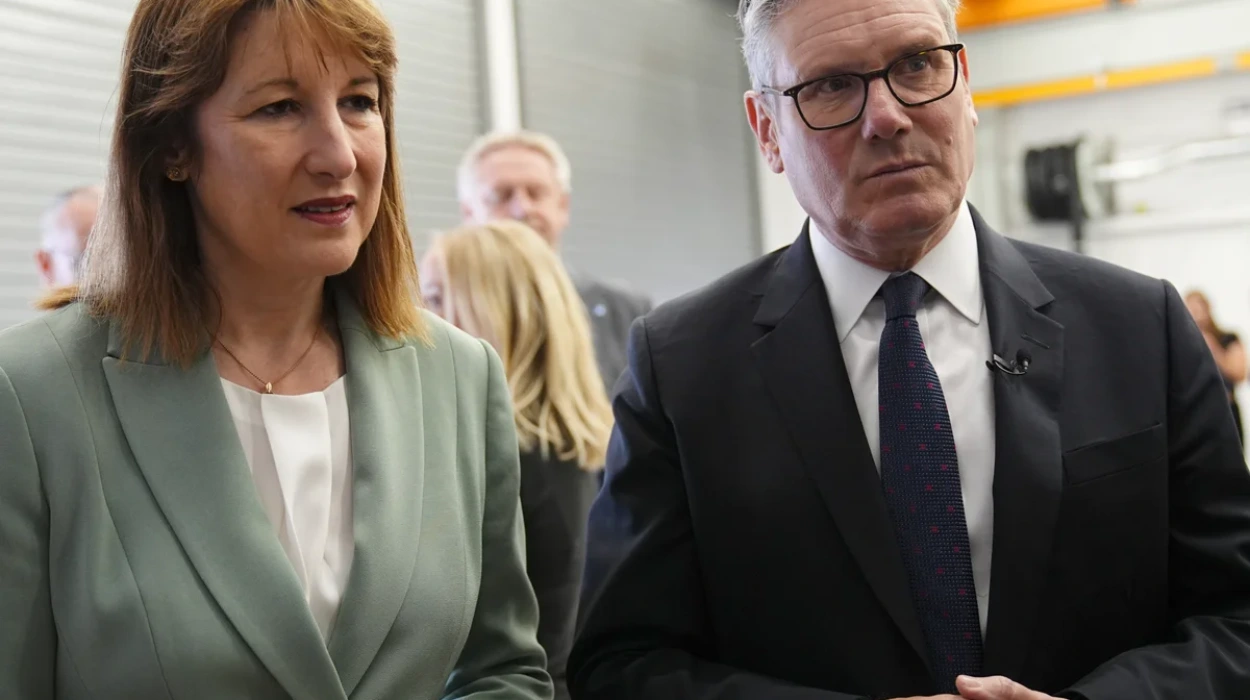UK (Parliament Politics Magazine) – Chancellor Rachel Reeves has urged de-escalation in the Middle East, warning that rising oil prices could impact the UK economy.
As reported by The Guardian, Rachel Reeves has urged calm in the Middle East, saying that escalating tensions and rising oil prices pose a threat to the UK economy. Her comments came during the launch of Labour’s long-awaited industrial strategy.
What did Rachel Reeves say about the Middle East crisis?
During a visit to an engineering site in Nuneaton with Keir Starmer and Business Secretary Jonathan Reynolds, Chancellor Rachel Reeves warned that the Middle East crisis could affect UK firms.
The chancellor stated, “We want de-escalation because it’s the right thing for the Middle East, but we also want de-escalation because of the ramifications of conflict in the Middle East for the rest of the world, including the UK.”
Ms Reeve said, “We have seen increases in oil prices in recent days and weeks, which of course, will have an impact on the UK economy.”
She added, “We recognise the challenge that businesses and families faced with energy costs, which is part of the reason why we’re doing what we’re doing today, but also why, for example, we’ve extended the warm homes discount to try to take money off people’s energy bills.”
Ms Reeves expressed support for US concerns over Iran’s nuclear programme, stating that 60% uranium enrichment goes beyond civilian needs – a fear Britain has consistently raised.
What did Jonathan Reynolds say about UK energy prices?
Jonathan Reynolds said the plan aims to bring UK energy prices in line with other European countries, ending its status as an outlier.
Mr Reynolds and Ms Reeves said the government plans to fund the scheme by extending the payment period for “contracts for difference,” which support renewable energy generation. They added that extra funds will come from future gains in carbon pricing through the emissions trading programme.
The business secretary said, “We are talking about a major shift in competitiveness for the sectors covered by the new British industrial competitiveness scheme: it moves us from being an outlier right into the middle of the pack – cheaper than Italy, Czech Republic, broadly comparable to, say, Germany.”
He added, “There’s no increase in bills for anybody else and no implications for tax or borrowing from these policy interventions by the energy department that will create the headroom to allow us to exempt these businesses.”
Mr Reynolds highlighted the cross-departmental scope of the industrial strategy, which spans multiple government departments and focuses on eight major sectors. Among them are manufacturing, finance, and the UK’s creative economy.
He said, “This has got real, significant interventions in it that are not only very important in their own right, they do get to the core of what I wanted, what we wanted, which is, you know, this is not the Department for Business and Trade or the Treasury industrial strategy, this is the British government’s industrial strategy.”
The business secretary also revealed a new approach for preparing investment-ready sites across the UK. He also announced a major funding boost for the taxpayer-backed British Business Bank and new authority for metro mayors to lead local economic planning.
What did Keir Starmer say about the US bombing Iran?
Prime Minister Keir Starmer supported President Trump’s decision to launch strikes on Iran, calling it a necessary step to tackle the country’s nuclear threat.
The Labour leader said, “Iran’s nuclear programme is a grave threat to international security. Iran can never be allowed to develop a nuclear weapon, and the US has taken action to alleviate that threat.”
He added, “The situation in the Middle East remains volatile and stability in the region is a priority. We call on Iran to return to the negotiating table and reach a diplomatic solution to end this crisis.”
What did European leaders say about preventing a nuclear Iran?
E3 group of leaders stated, “Our aim continues to be to prevent Iran from acquiring a nuclear weapon. We call upon Iran to engage in negotiations leading to an agreement that addresses all concerns associated with its nuclear program. We stand ready to contribute to that goal in coordination with all parties.”
They added, “We urge Iran not to take any further action that could destabilise the region. We will continue our joint diplomatic efforts to defuse tensions and ensure the conflict does not intensify and spread further.”


